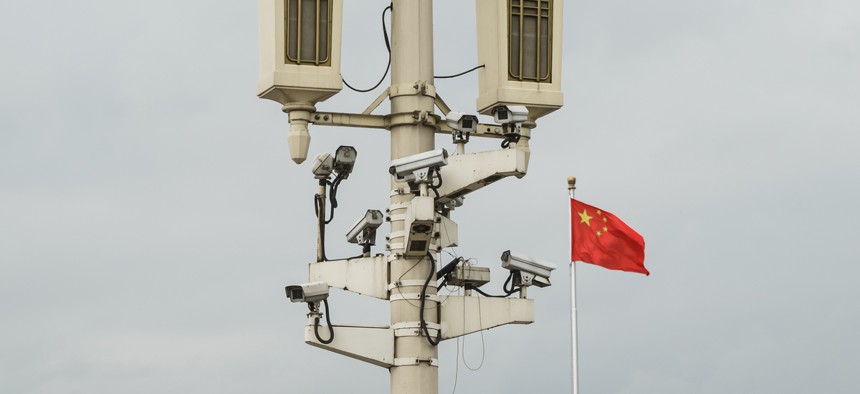What Do China’s Police Collect on Citizens in Order to Predict Crime? Everything

Louis Constant/Shutterstock.com
These databases can scoop up everything from addresses, to medical history, supermarket membership, and delivery records.
When a woman named Wu received a text message from a local fire department about the inhabitants of her home, she was shocked. The department notified Wu that her house, rented out to a couple, had in fact been sublet to many others. Long before she knew it, the details of her house had been input into China’s policing system, which has a better memory than most people in China about what they did, and where, and when.
In public, China’s been implementing systems based on facial recognition (paywall) to stop unwanted behavior like jaywalking. But the information authorities are collecting is far more intrusive than video footage of public acts. Wu’s situation was described in a presentation (link in Chinese) last year by a surveillance information specialist working with the country’s Ministry of Public Security, who said that the warnings generated by big data were letting the “common public and society taste the sweetness.”
A Nov. 19 report by advocacy group Human Rights Watch (HRW), which refers to the presentation, looks at one of the most ambitious systems being set up thanks to personal information linked to government-issued IDs. Called “Police Cloud,” it appears to be a project of the Ministry of Public Security, which issued a regulation in 2015 aimed at enhancing nation-wide information sharing through provincial-level police cloud-computing centers (link in Chinese).
These databases can scoop up everything from addresses, to medical history, supermarket membership, and delivery records. Data analytics and cloud computing allow security bureau authorities to then look for patterns in personal data far more efficiently than was possible even a few years ago, and make predictions. The ministry couldn’t be reached out for comment.
“It is frightening that Chinese authorities are collecting and centralizing ever more information about hundreds of millions of ordinary people, identifying persons who deviate from what they determine to be ‘normal thought,’ and then surveilling them,” said Sophie Richardson, HRW’s China director.
In China’s eastern province, Jiangsu, for instance, local police adopted a criminal prediction system three years ago that has amassed over 780 million data points—including citizen’s incomes, recreational sites, and housing prices of the past 10 years. The system then pushes notifications with aggregated information about possible situations of concern to police patrols twice a day, according to a report in January from a Chinese legal newspaper (link in Chinese). A local police station in Jiangsu’s Suzhou said the crime rate had dropped more than half in the first three months after adopting the system.
The system can also help visualize relationships between individuals. In Jinan, the capital city of China’s northeastern province Shandong, the local government has introduced a police system that would spot what local police considered “abnormal” behavior. For instance, the system could decide two people have a close relationship based on if they are recorded as visiting an internet cafe twice at the same time, and if two individuals have shown “abnormal” patterns of staying at the same hotels, read the purchase document from Jinan government.
China has been stepping up in collecting personal information against those it deems to be potential threats in recent years. By the end of 2015, the country has already collected DNA of more than 40 million people, including ordinary citizens. Many of these included local citizens from Muslim-heavy Xinjiang Uyghur Autonomous Region, which has been the subject of crackdowns in an effort to wipe out homegrown terrorists.
NEXT STORY: How AI can make use of DOD's data stockpile





